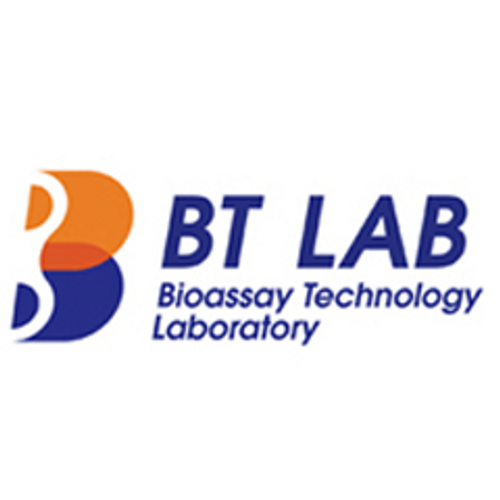Product Description
Fish Aspartate aminotransferase (AST) ELISA Kit | AE63333FI | Abebio
Species Reactivity: Fish
Abbreviation: GOT1
Alternative Name: GIG18; aspartate aminotransferase 1|growth-inhibiting protein 18
Application: ELISA
Range: Request Information
Sensitivity: Request Information
Intra-Assay: ≤5.9%
Inter-Assay: ≤7.8%
Recovery: 0, 79
Sample Type: Serum, Plasma, Other biological fluids
Detection Method: Sandwich
Analysis Method : Quantitive
Test Principale: This assay employs a two-site sandwich ELISA to quantitate GOT1 in samples. An antibody specific for GOT1 has been pre-coated onto a microplate. Standards and samples are pipetted into the wells and anyGOT1 present is bound by the immobilized antibody. After removing any unbound substances, a biotin-conjugated antibody specific for GOT1 is added to the wells. After washing, Streptavidin conjugated Horseradish Peroxidase (HRP) is added to the wells. Following a wash to remove any unbound avidin-enzyme reagent, a substrate solution is added to the wells and color develops in proportion to the amount of GOT1 bound in the initial step. The color development is stopped and the intensity of the color is measured.
Product Overview: AST) is similar to alanine transaminase (ALT) in that it is another enzyme associated with liver parenchymal cells.It is raised in acute liver damage. It is also present in red blood cells and cardiac muscle, skeletal muscle, and kidney and brain tissue, and may be elevated due to damage to those sources as well.AST was defined as a biochemical marker for the diagnosis of acute myocardial infarction in 1954. However the use of AST for such a diagnosis is now redundant and has been superseded by the cardiac troponins.The 2 isoenzymes are homodimeric. In liver about 80% of the enzyme activity is mitochondrial in origin, whereas in serum the enzyme activity is largely cytosolic.
Stability: The stability of ELISA kit is determined by the loss rate of activity. The loss rate of this kit is less than 5% within the expiration date under appropriate storage condition. The loss rate was determined by accelerated thermal degradation test. Keep the kit at 37°C for 4 and 7 days, and compare O.D.values of the kit kept at 37°C with that of at recommended temperature. (referring from China Biological Products Standard, which was calculated by the Arrhenius equation. For ELISA kit, 4 days storage at 37°C can be considered as 6 months at 2 - 8°C, which means 7 days at 37°C equaling 12 months at 2 - 8°C) .
 Euro
Euro
 USD
USD
 British Pound
British Pound
 NULL
NULL








